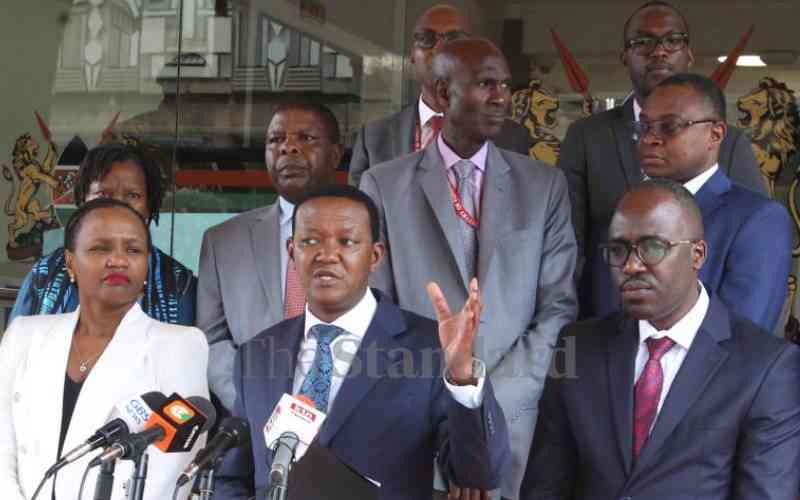×
The Standard e-Paper
Stay Informed, Even Offline

Foreign Affairs Cabinet Secretary Alfred Mutua appears to have been overshadowed by his colleague in Trade and most certainly the president, but he does not see it that way.
When he was appointed almost a year ago many thought that the communication expert had found fertile ground for his linguistic intelligence to thrive.